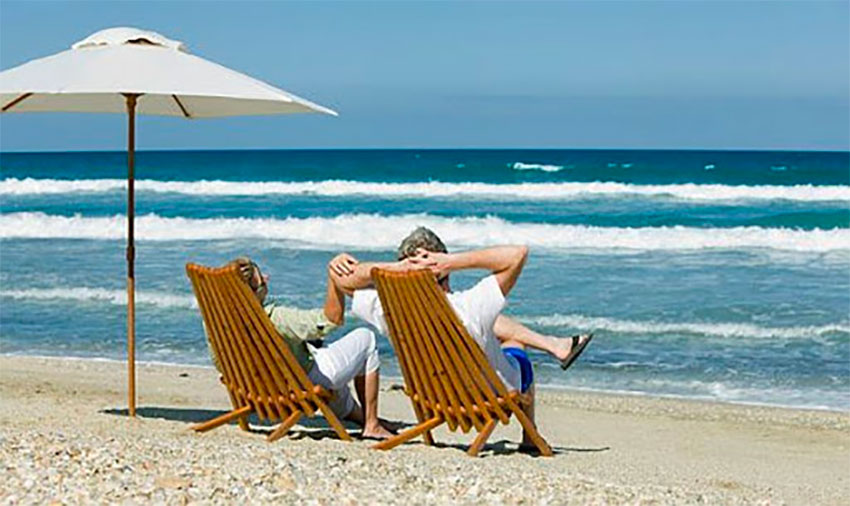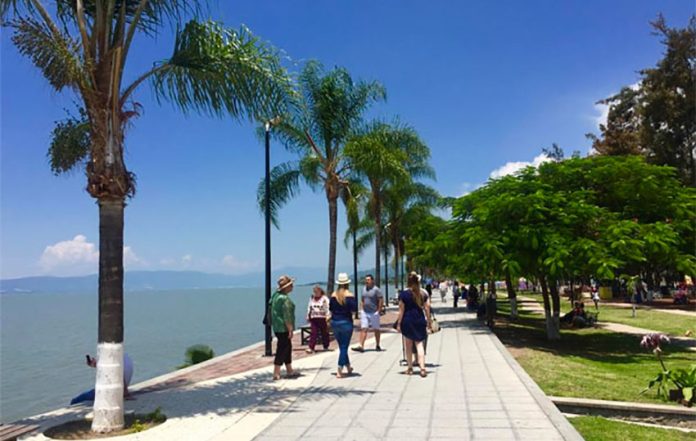If you’re in your 60s and from the United States it’s likely you are pondering a “What next?” dilemma, appraising lifestyle choice in the glaring light of America’s Covid-19 medical care debacle, a dearth of savings, and a pending social security train wreck.
Adding to the complexity is a likelihood that your parents’ futures are part of this life 2.0 decision. Like never in our history, our parents are living longer, staying active, and facing (with their grown-up children) an uncertain future. The question for many is, “Can we afford quality senior care, while not draining a lifetime of assets and savings?”
For my family, this quandary was more than philosophical. Things up north in Bend, Oregon, changed as my wife and I were joined by a new roommate — my 83-year-old mom. We embraced this change with open arms — yet over time came to accept how tenuous our situation had become.
Today, millions of Americans are at least considering abroad options (some nine million U.S. passport holders now live outside the U.S.), choices scarcely considered a generation ago. And for many, the reality of taking along aged parents is now squarely part of our “what next” lifestyle decision.
Many of us boomers cozy up to the idea of living abroad. It might have started as a trivial, somewhat voyeuristic form of inquisitiveness, peeking from our U.S. living rooms at media outlets such as House Hunters Abroad and International Living. A “Wouldn’t it be fun?” form of escapism has seeped into our retirement consciousness.
For us, the first decision to resolve was, “Is migrating with Mom the right thing to do?” An unsuccessful and expensive go at assisted living in Oregon (more and more like all-inclusive resorts for active boomers and/or their parents), left us seriously talking about options. There had to be a better way.
The jaw-dropping cost and insular, institutional memory care experience convinced us to do some exploring, and led to our first of many “Ah ha!” moments.
It’s not unlike the path many of you have entered upon over the last 30 or so years. Go on vacation, find a place that clicks, make the timeshare down payment, and start to wonder why your special place can’t become your year-round home.
For some places, like Mexico, the boom began long before the 2007 housing crash. No one really knows the real number, but a commonly-sited statistic is that over one million Americans are now residing full-time under the Mexican sun.
Another “Ah ha!” moment came following a visit with a friend in Guadalajara when my wife Jane brought me two 1940s books about Mexico lakeside living by writer Dane Chandos (he’s really Englishman Peter Lilley), who adopted Lake Chapala as his home and lived lakeside for over 30 years.
His “House in the Sun” still stands lakefront in San Antonio Tlayacapan. In an era before gated expat communities, the books recount the challenges and everyday curiosities that enchant so many norteamericanos with Mexico.

“Chapala, huh? Didn’t Americans and Canadians used to go there to retire?” In fact, yes; the villages lining the lake’s northern shore have been attracting expats for decades. Chapala is both a town and a lake (Mexico’s largest). Tucked between shoreline and sierra is a string of cobbled and colorful colonial-era villages.
At a quite comfortable 5,000 feet altitude, Chapala is half an hour from Guadalajara’s international airport and under an hour to the nearest Costco and the city’s world-class medical care. We’d be under a three-hour drive to the coast (Manzanillo), be able to get familiar brands at Ajijic’s “scenic-view” Walmart and be sure to find an assortment of home rentals for under US $800 a month.
But we weren’t really looking for a gringo bubble of country clubs and expat-led organic markets. What cinched the deal for us was Chapala’s amalgamation of Mexican village simplicity, spectacular scenery, the world’s best climate, and a better place for Mom.
Yes, there are going to be decisions and trade-offs – and some hard ones. You will collaborate with your spouse and perhaps conclude that it’s just not practical, it’s not the right time, we won’t see our grandkids, we need to work a few more years before retiring, we don’t speak any foreign languages.
Picking up and moving abroad is daunting to even the most seasoned global traveler. And it’s not everyone’s path to a successful, sustainable lifestyle migration. But many, many of us overcome our apprehensions and take the proverbial plunge.
We moved with Mom to the Chapala lakefront in 2015. Mom passed away on Easter Sunday, 2020.
Demographers tell us that an astounding 10,000 Americans reach retirement age every single day, and few are either financially equipped or emotionally prepared to manage our own retirement – and even fewer of us are able to do so while caring for an aging parent.
Your first inclination might be to jot down a short list of “Why we CAN’T do this now.” Be careful! You might find writing down the obvious obstacles becomes a roadmap rather than an offramp to a new generational partnership in a foreign land.
For us, fulfilling a decades-old dream became something much more than an escapist TV show. Ironically, it was Mom’s fading memory that helped us decide that it was time to start making new memories, while living atop Mexico’s hospitable altiplano.
Greg Custer lives lakeside in Ajijic and helps expats find their own village in the sun with his company www.choosingmexico.com.
